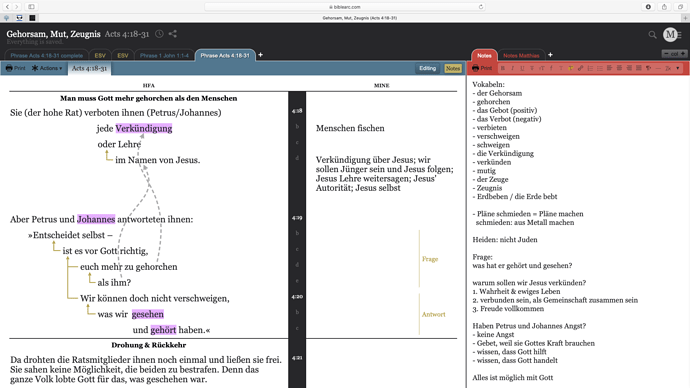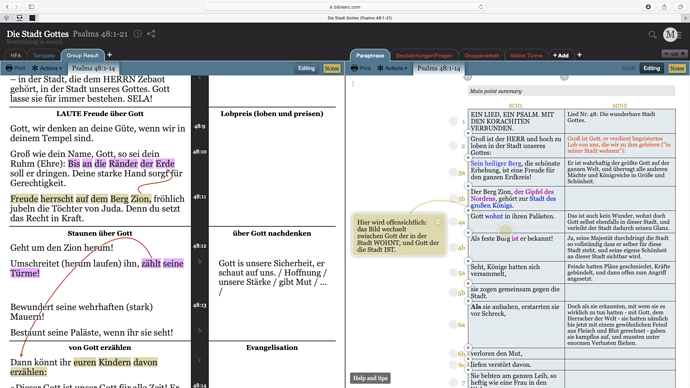One thing I find fascinating about faith is that the deepest spiritual truths can be expressed in extremely simple language - God makes himself accessible to children, to foreigners, to “the weak”.
I wanted to share ideas for how we have explored this in practice. Given that we live in Germany, and my Japanese wife is still learning the German language, we thought we faced a dilemma: Join a Japanese-speaking or English-speaking small group, and risk slowing the integration process into the local (German-speaking) Christian community? Or join a German-speaking group and risk spiritual growth due to the language barrier? There turned out to be a better way: Together with dear friends (an Indonesian couple who are also German language learners) we formed a Bible study group in “simple German”. The experience is that when people purposefully slow down, make an effort to use simple language, and stay away from overly technical discussions (which are often not that helpful anyways), the required level of language proficiency is surprisingly low. This might work best when there are more language learners than native speakers in the group. The most surprising part was that my Indonesian friend, who’s German is still pretty basic, was able to actually lead the group study. Our trick was for him to send me some study questions to translate into German, and with reference to those questions he was able to lead us into what is often a very rewarding and fruitful group study. The only role I play when he leads is explaining difficult German words and taking notes.
Taking notes brings me to the tech side of things: Being forced to do the study online for quite some time now has quickly led us to use screen sharing in what turned out a surprisingly effective way in our setting. Language learners benefit hugely from having access to multiple modalities, i.e. listening and reading. For this reason, I always write down questions on the screen, and short sentences that summarize the attendee’s contributions to the discussion. That way nobody gets left behind (and honestly it also helps me as a native speaker to keep track of all the interesting things we talked about). Next, we have started using biblearc.com which is an awesome website targeted at in-depth personal Bible study, but it’s user interface is so good that it’s useful in the group study context as well. In particular, it allows indenting Bible verses, drawing arrows, etc. to explain relationships (whether grammatically or theologically), highlighting words, quickly drawing up different translations, Hebrew, search, and writing comments e.g. to jot down translations of difficult terms.
One thing we are struggling with in the pandemic is with inviting more people. Our original plan was to make this a very open group and invite non-believers to join us, but the pandemic has really slowed these plans down. But besides this, we have been super encouraged by this and wanted to share this in case some of our ideas are helpful to others. Would love to hear your thoughts, as well.


